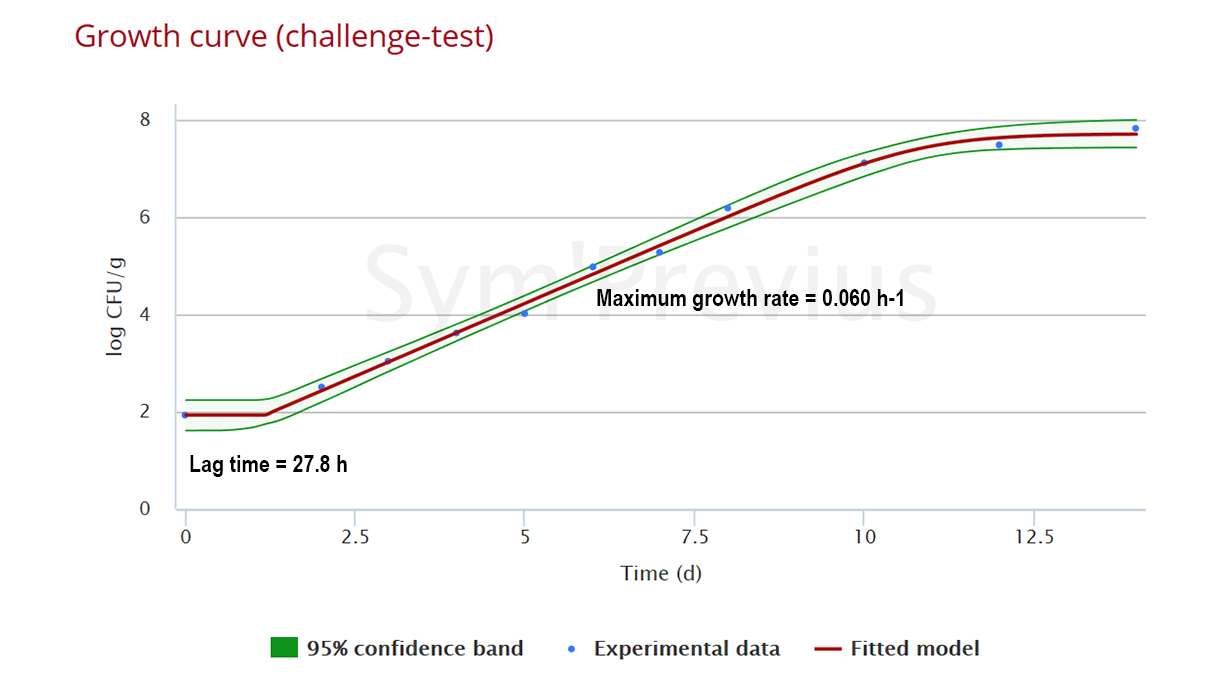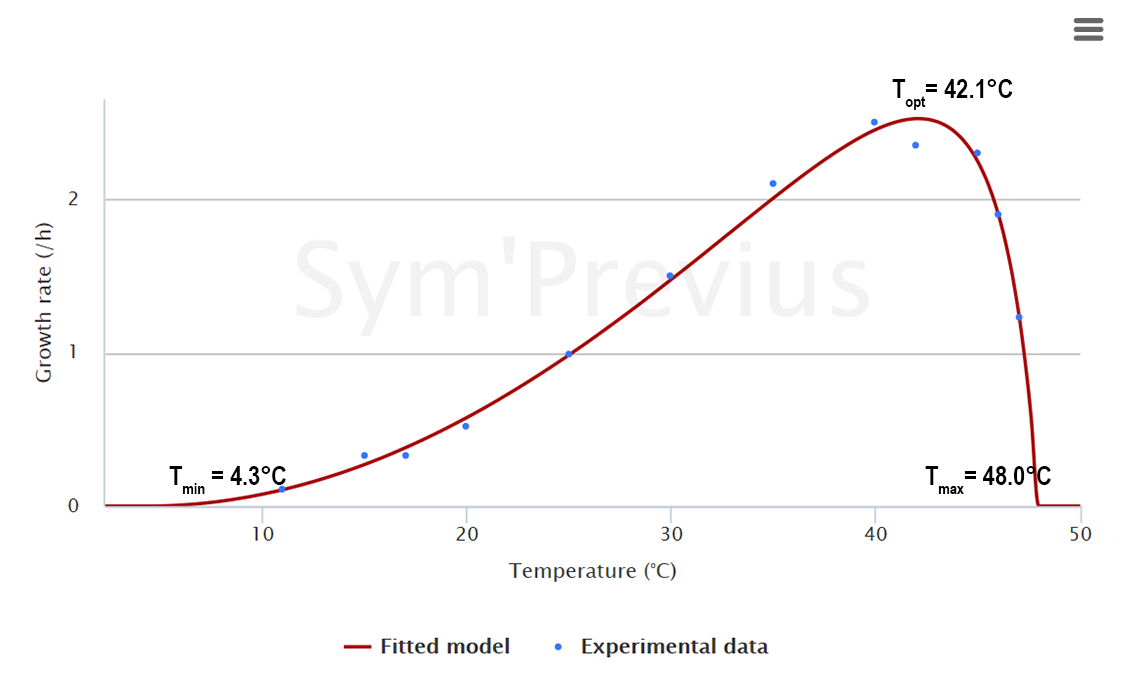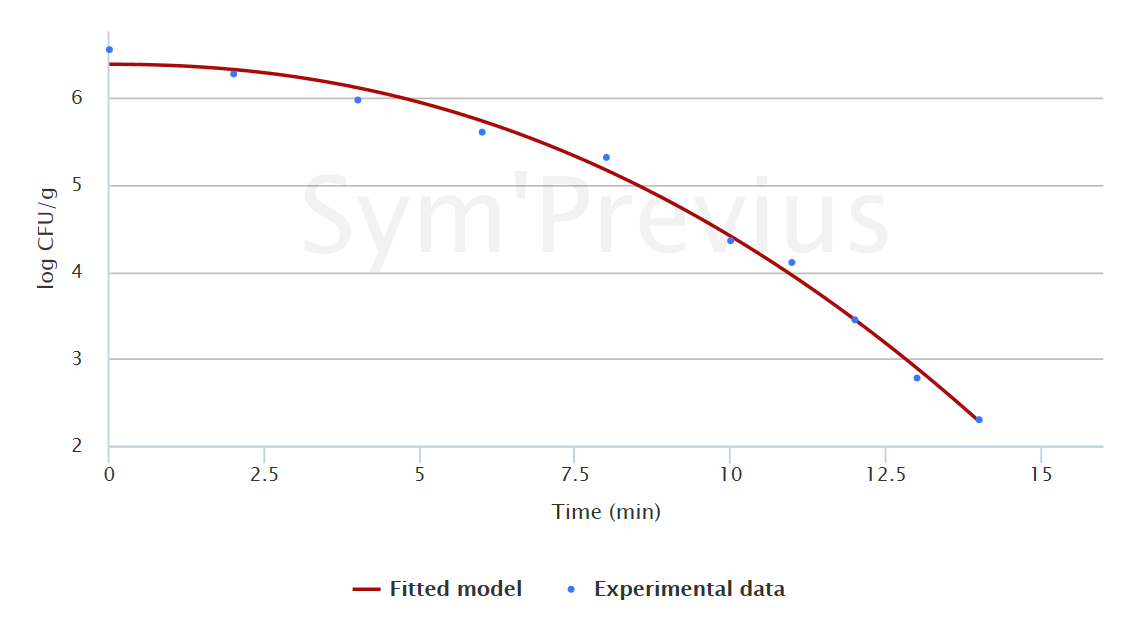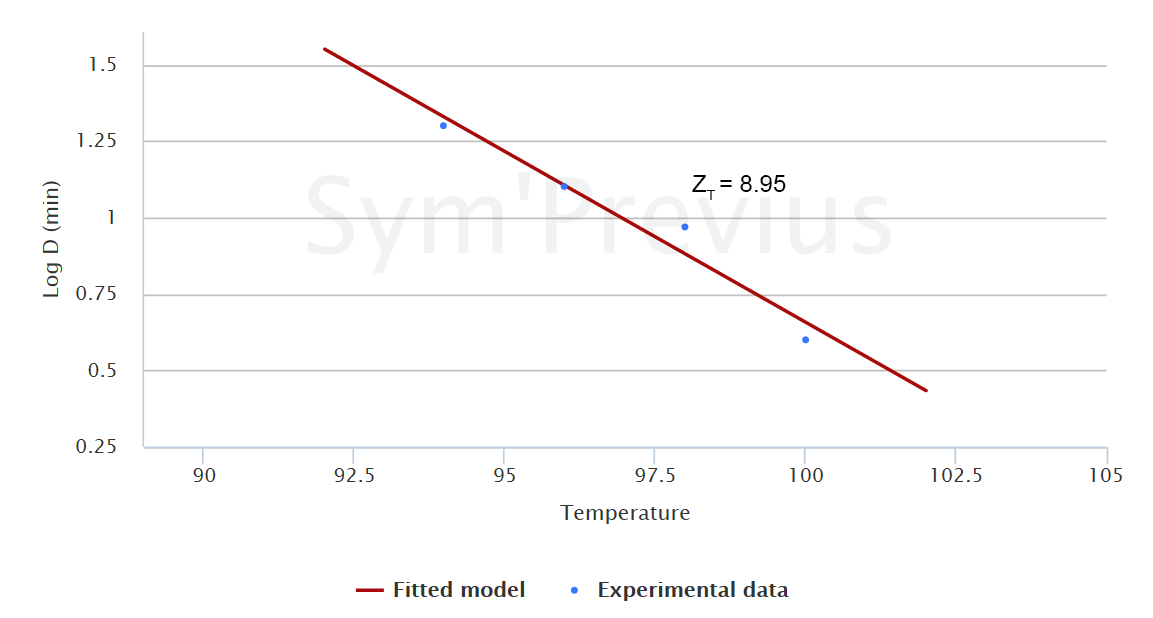Overview
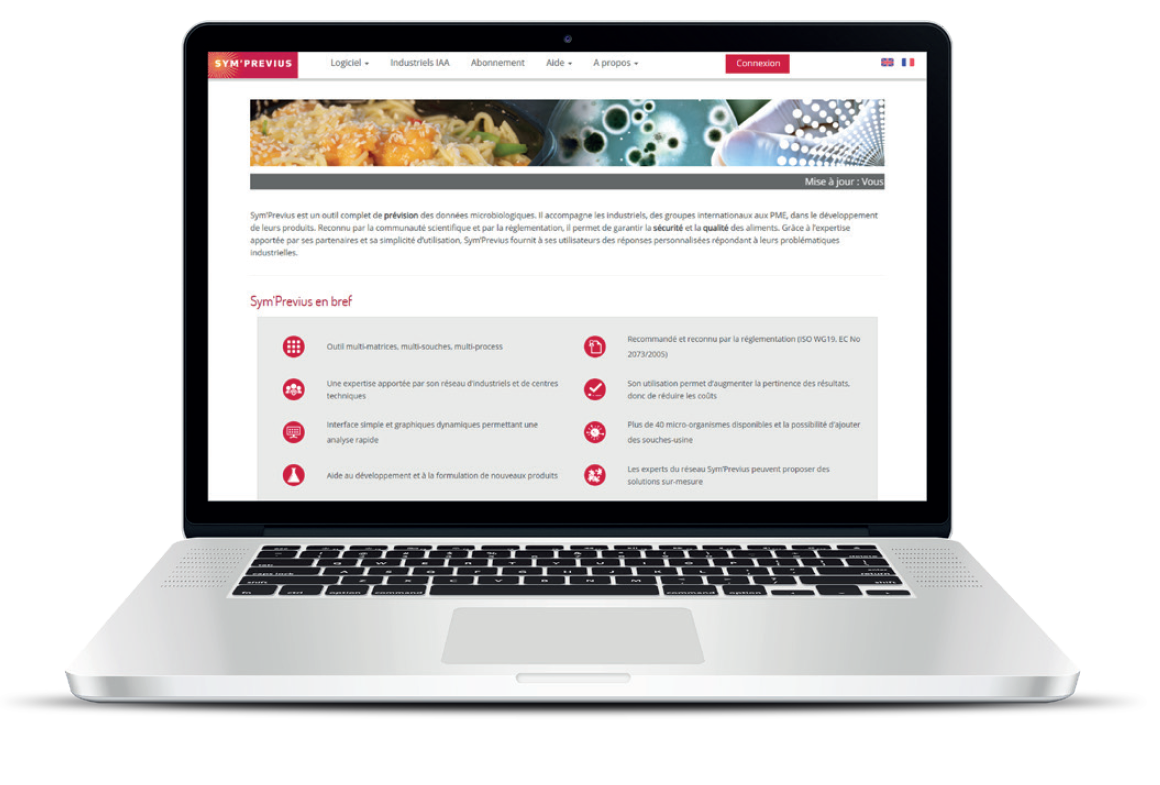
Sym’Previus is a decision support software tool for predicting bacterial growth, growth/no growth boundaries and thermal inactivation. It also contains microbiological data fitting tools. The software makes it possible to take into account variability inherent to food products, processes and micro-organisms, as indicated in EC Regulation 2073-2005.
Sym’Previus is available online, as a free version , or as a Premium version with the option of subscribing to optional modules. The free version allows the use of the fitting tools while the standard Premium version (€530/year excl. VAT) also allows you to use the classic bacterial simulation modules. In addition to the basic Premium version, you can also subscribe to the fungal modules (€635/year excl. VAT) and/or the MAP “modified atmosphere” module (€618/year excl. VAT). Note that all your results and settings are saved in your private user account, which ensures data confidentiality.
Simulation tools (standard Premium version)
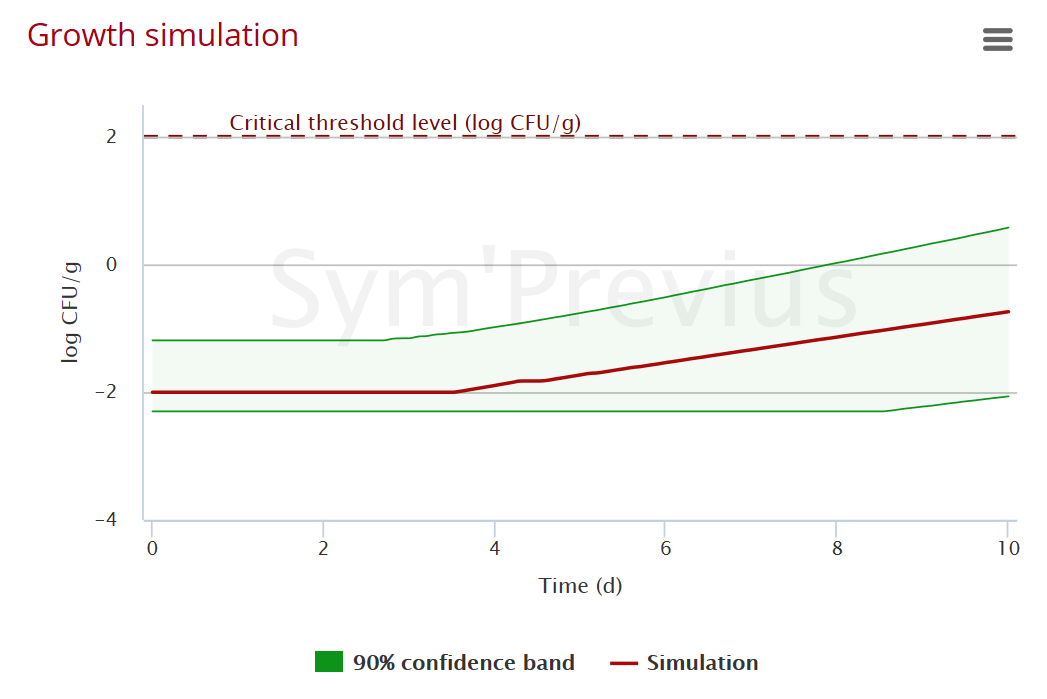
- Simulations can be performed under fluctuating conditions (T°, pH,..)
- Presence/absence data can be input to estimate the prevalence and the distribution of initial contamination
- Challenge-test data can be input to calibrate model predictions to the food of interest
- Available for 9 pathogenic and 14 spoilage microorganisms
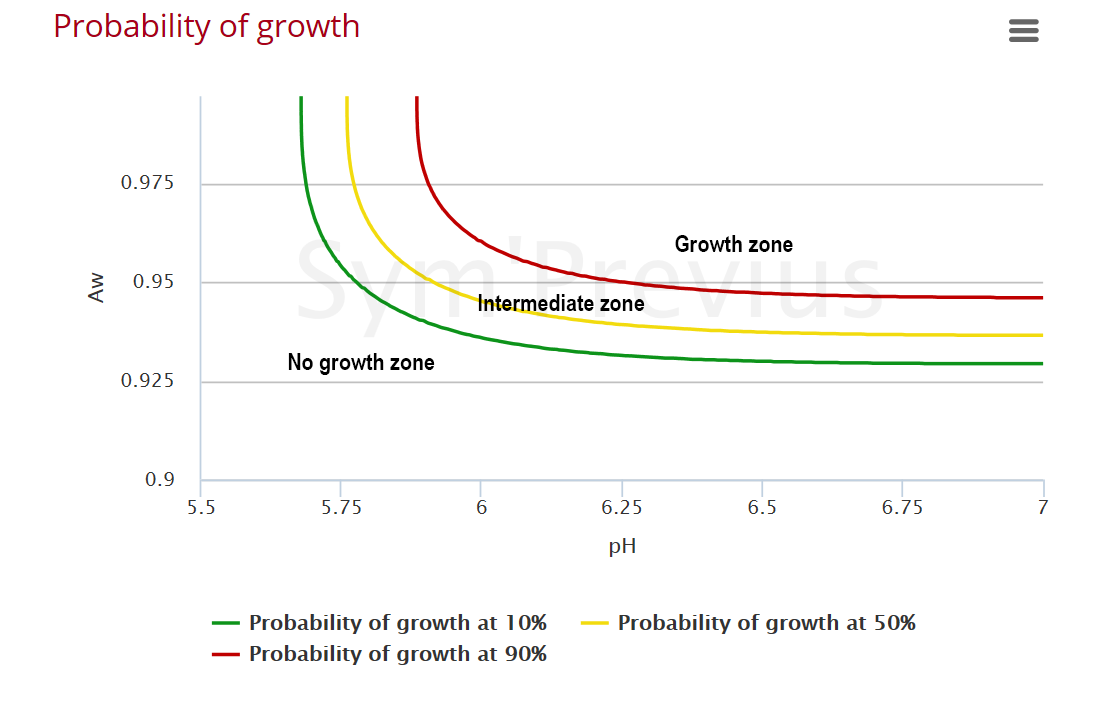
- Available for7 pathogenic and 9 spoilage microorganisms
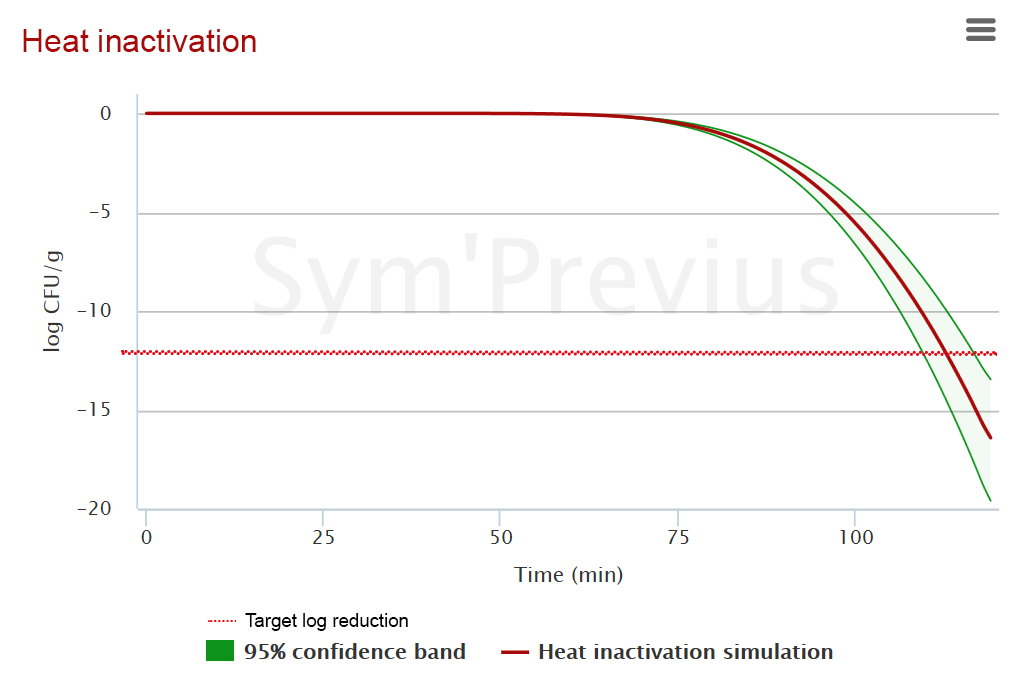
- Simulations can be performed under changing temperature
- Models available 9 pathogenic and 22 spoilage microorganisms
- Models available for up to 5 individual strains
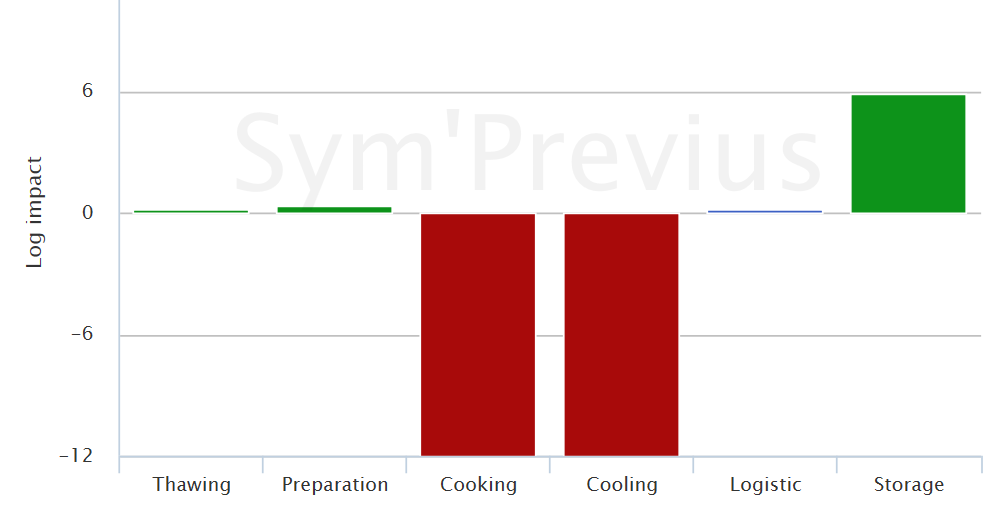
- Calculation of the impact of each process step on growth/inactivation of a bacterial species
- Identification of critical steps in the manufacturing process
- Available for 9 pathogens
Optionnal modules (in the Premium version)
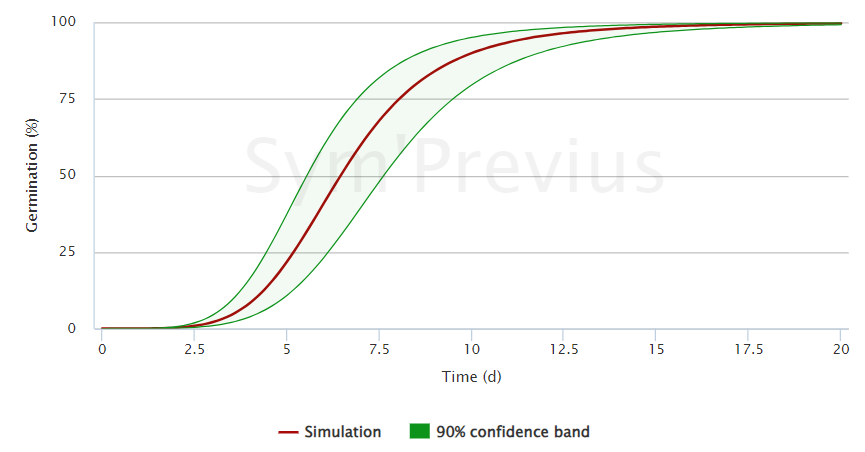
- Simulations of germination % as a function of time, temperature, pH and water activity
- Available for 2 fungal flora (Penicillium camemberti and Penicillium roqueforti)
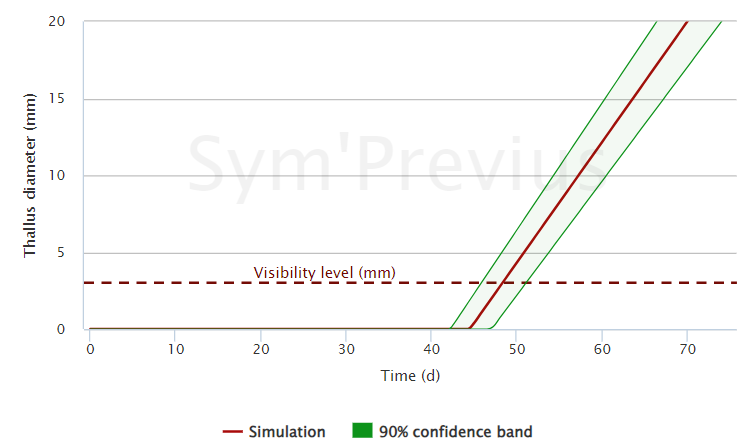
- Simulations of thallus diameter evolution and environmental factors (T°C, pH, aw, MAP conditions and lactic and propionic acid concentrations)
- Calculation of the probability of exceeding the visibility threshold
- Available for 16 fungal species involved in spoilage or of technological interest

- Simulation taking into account gas exchanges between product, headspace and external environment
- Self-monitoring data can be used to estimate prevalence and initial contamination
- Challenge-test data can be input to calibrate model predictions to the food of interest
- Available for 1 pathogenic and 9 spoilage microorganisms




